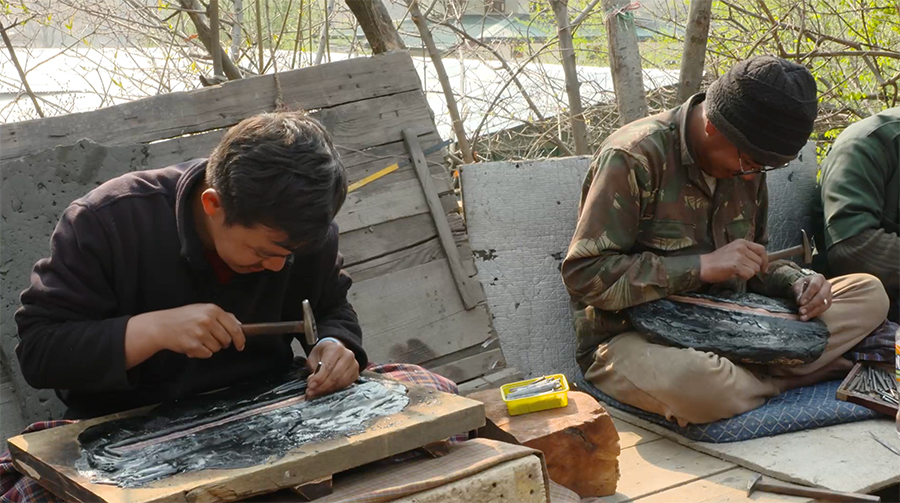 Local gold and silver smiths and metal casters, locally known as Troezo and Lugzo, are struggling with dwindling business as more foreign craftsmen enter the market. These craftsmen offer cheaper labour and mass production, making it difficult for local artisans to compete. This trend, which grew after the COVID-19 pandemic, continues to challenge the survival of traditional smithing, a craft passed down for generations.
Local gold and silver smiths and metal casters, locally known as Troezo and Lugzo, are struggling with dwindling business as more foreign craftsmen enter the market. These craftsmen offer cheaper labour and mass production, making it difficult for local artisans to compete. This trend, which grew after the COVID-19 pandemic, continues to challenge the survival of traditional smithing, a craft passed down for generations.
 Troezo is the art of creating detailed designs on precious metals such as gold and silver, while Lugzo refers to the craft of metal casting.
Troezo is the art of creating detailed designs on precious metals such as gold and silver, while Lugzo refers to the craft of metal casting.
Besides preserving and promoting the country’s traditional craftsmanship, local artisans have long treated their work as a viable business passed down through generations. However, with changing times and growing competition, many artisans now find it increasingly difficult to sustain their livelihoods, which they attribute to the rising number of craftsmen being hired from Nepal.
Practitioners of Troezo and Lugzo say their businesses are at risk, despite the growing number of temple and monastery construction projects. They say this is because individuals and institutions hire more foreign craftsmen, leaving local artisans without work.
“We have a few youths working with us, and we are doing small jobs that we get. Earlier, we used to get a lot of work, but for the past two to three years, we haven’t been getting a good amount of work.”
“When we charge Nu 100,000 and they charge Nu 300,000, they still get the job. In terms of quality, it’s not that Bhutanese smiths can’t deliver, but it is difficult to get prices that match the standard. This is where the difference arises between workers from Nepal and local artisans.”
“About four to five months ago, I was confirmed for a statue-making deal. However, after the Gelephu empowerment ceremony, there was no further communication. When I followed up, I was told that a friend of theirs, who is a patron of a khenpo had given the project to workers from Nepal instead. This has really affected our work.”
The artisans added that if such practices continue, it will undermine the promotion and preservation of traditional craftsmanship in the country.
To address the growing challenges, a group of artisans working in Troezo and Lugzo appealed to the Ministry of Industry, Commerce and Employment last year. They requested the ministry to look into their concerns and take measures to support the sustainability of their struggling businesses. The ministry says they are still reviewing.
Meanwhile, the Department of Labour told BBS that semi-skilled foreign workers in the fields of Troezo and Lugzo are only allowed to complement Bhutanese artisans and not replace them. The department added that the hiring of such workers is approved on a case-by-case basis due to manpower shortages, especially during large-scale projects.
So far, there are over 80 licensed Troezo and Lugzo businesses, including sculpture, across four districts.
Kinzang Lhadon
Edited by Sonam Pem









